Quotes & Sayings About The Evils Of Politics
Enjoy reading and share 16 famous quotes about The Evils Of Politics with everyone.
Top The Evils Of Politics Quotes
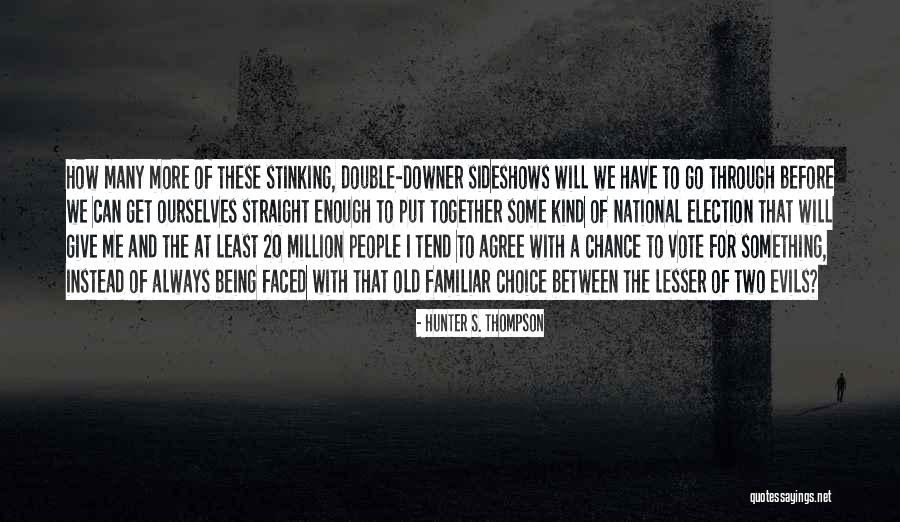
How many more of these stinking, double-downer sideshows will we have to go through before we can get ourselves straight enough to put together some kind of national election that will give me and the at least 20 million people I tend to agree with a chance to vote FOR something, instead of always being faced with that old familiar choice between the lesser of two evils? — Hunter S. Thompson
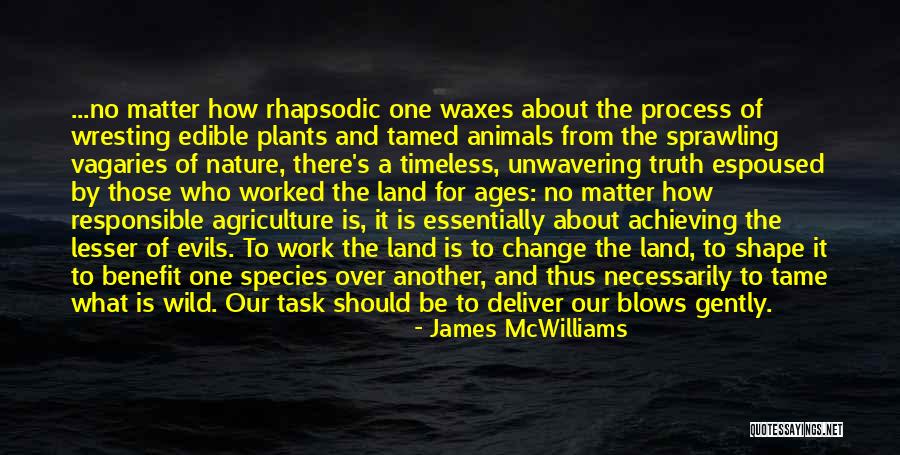
...no matter how rhapsodic one waxes about the process of wresting edible plants and tamed animals from the sprawling vagaries of nature, there's a timeless, unwavering truth espoused by those who worked the land for ages: no matter how responsible agriculture is, it is essentially about achieving the lesser of evils. To work the land is to change the land, to shape it to benefit one species over another, and thus necessarily to tame what is wild. Our task should be to deliver our blows gently. — James McWilliams
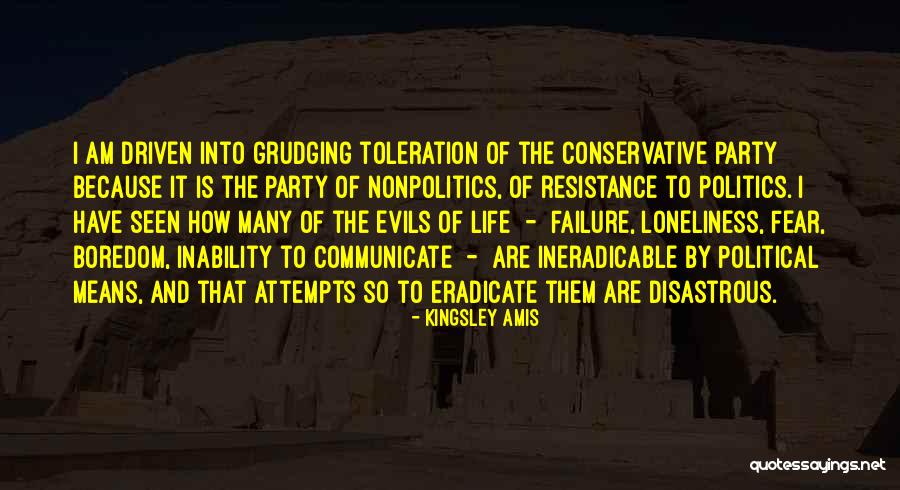
I am driven into grudging toleration of the Conservative party because it is the party of nonpolitics, of resistance to politics. I have seen how many of the evils of life - failure, loneliness, fear, boredom, inability to communicate - are ineradicable by political means, and that attempts so to eradicate them are disastrous. — Kingsley Amis
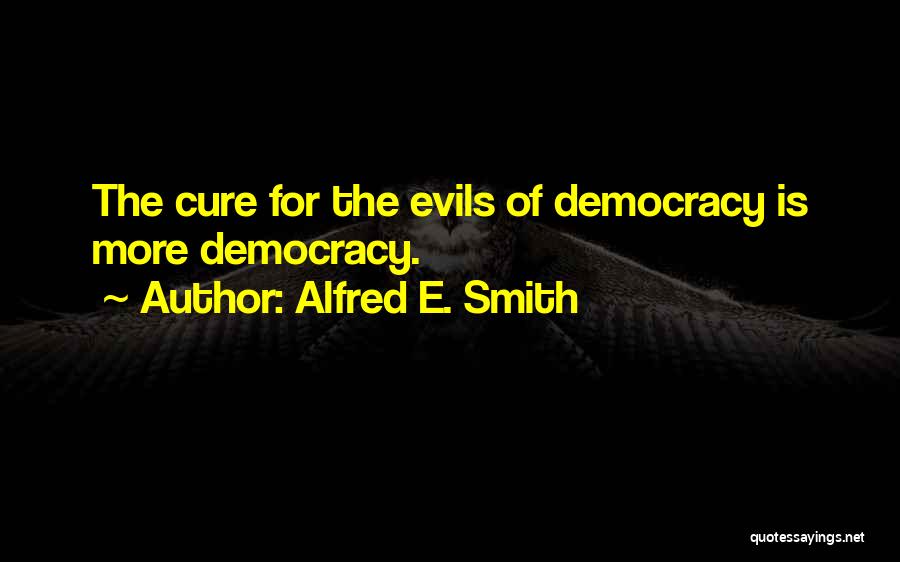
The cure for the evils of democracy is more democracy. — Alfred E. Smith
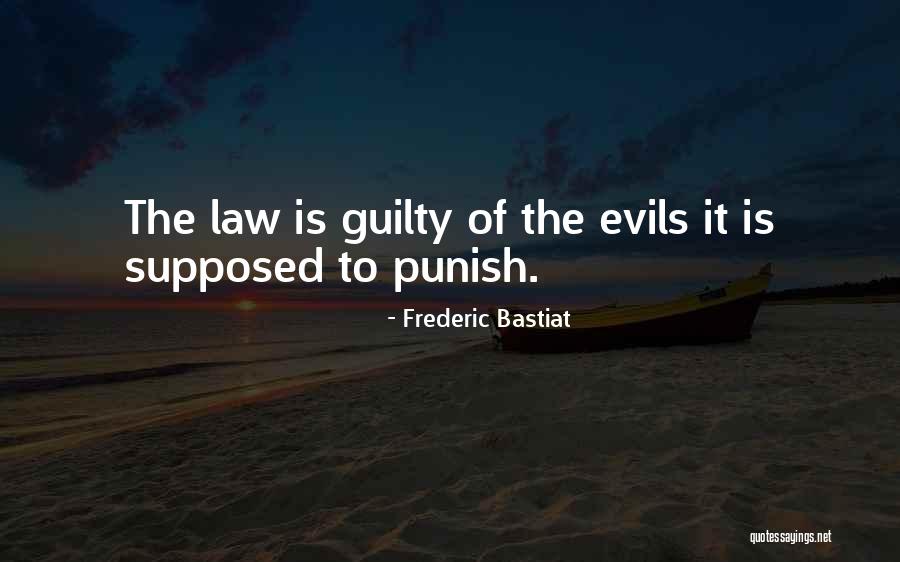
The law is guilty of the evils it is supposed to punish. — Frederic Bastiat
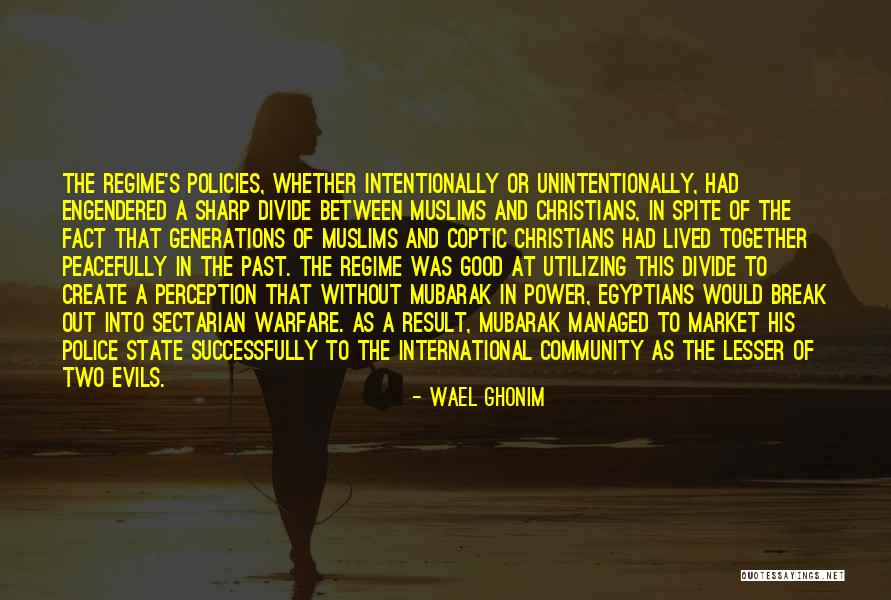
The regime's policies, whether intentionally or unintentionally, had engendered a sharp divide between Muslims and Christians, in spite of the fact that generations of Muslims and Coptic Christians had lived together peacefully in the past. The regime was good at utilizing this divide to create a perception that without Mubarak in power, Egyptians would break out into sectarian warfare. As a result, Mubarak managed to market his police state successfully to the international community as the lesser of two evils. — Wael Ghonim
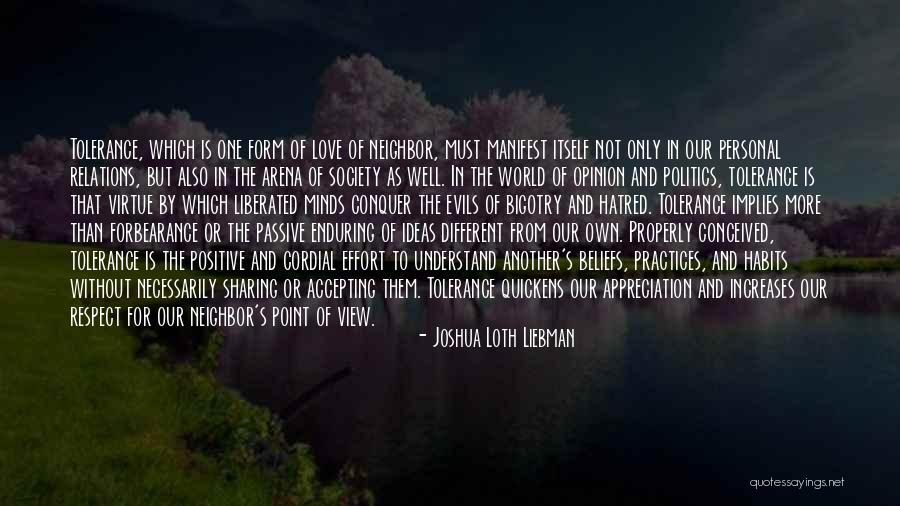
Tolerance, which is one form of love of neighbor, must manifest itself not only in our personal relations, but also in the arena of society as well. In the world of opinion and politics, tolerance is that virtue by which liberated minds conquer the evils of bigotry and hatred. Tolerance implies more than forbearance or the passive enduring of ideas different from our own. Properly conceived, tolerance is the positive and cordial effort to understand another's beliefs, practices, and habits without necessarily sharing or accepting them. Tolerance quickens our appreciation and increases our respect for our neighbor's point of view. It goes even further; it assumes a militant aspect when the rights of an opponent are assailed. Voltaire's dictum, "I do not agree with a word that you say, but I will defend to the death your right to say it," is for all ages and places the perfect utterance of the tolerant ideal. — Joshua Loth Liebman
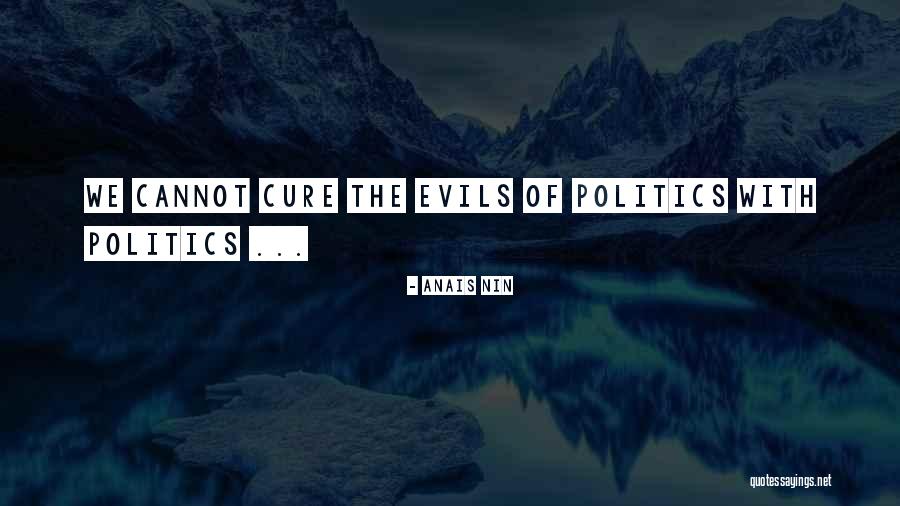
We cannot cure the evils of politics with politics ... — Anais Nin
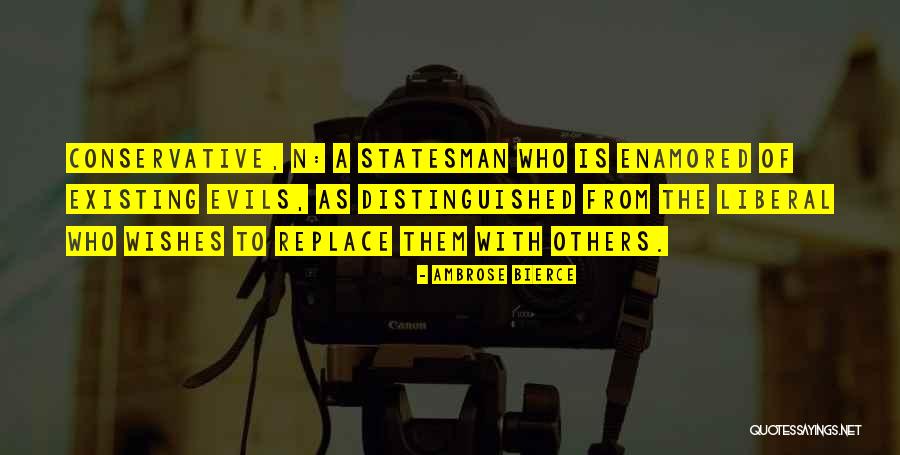
Conservative, n: A statesman who is enamored of existing evils, as distinguished from the Liberal who wishes to replace them with others. — Ambrose Bierce
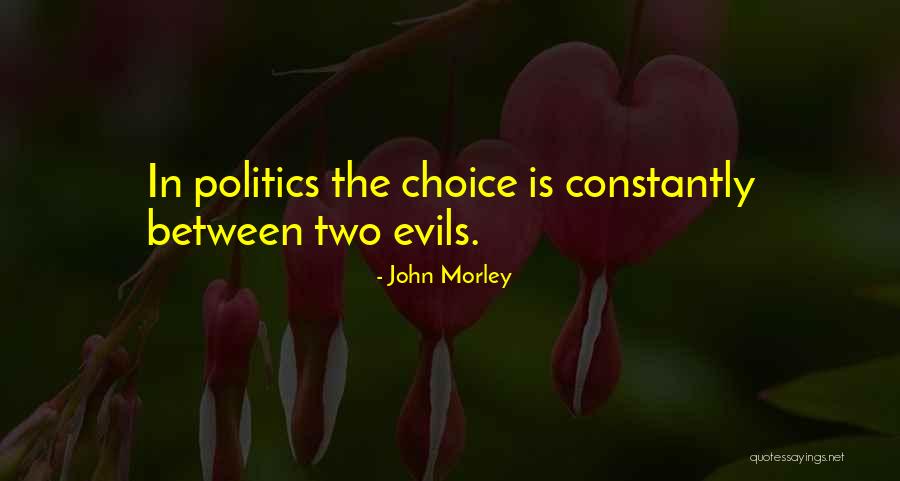
In politics the choice is constantly between two evils. — John Morley
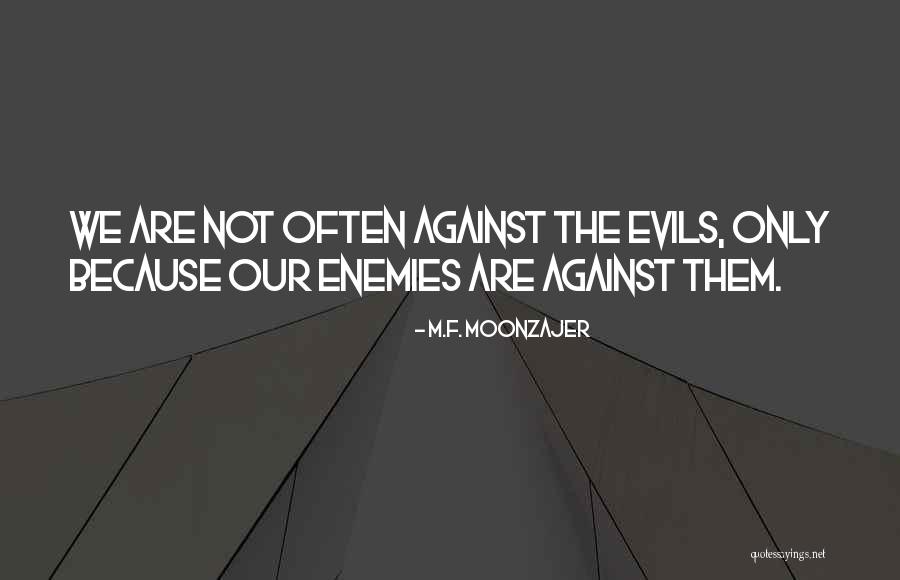
We are not often against the evils, only because our enemies are against them. — M.F. Moonzajer
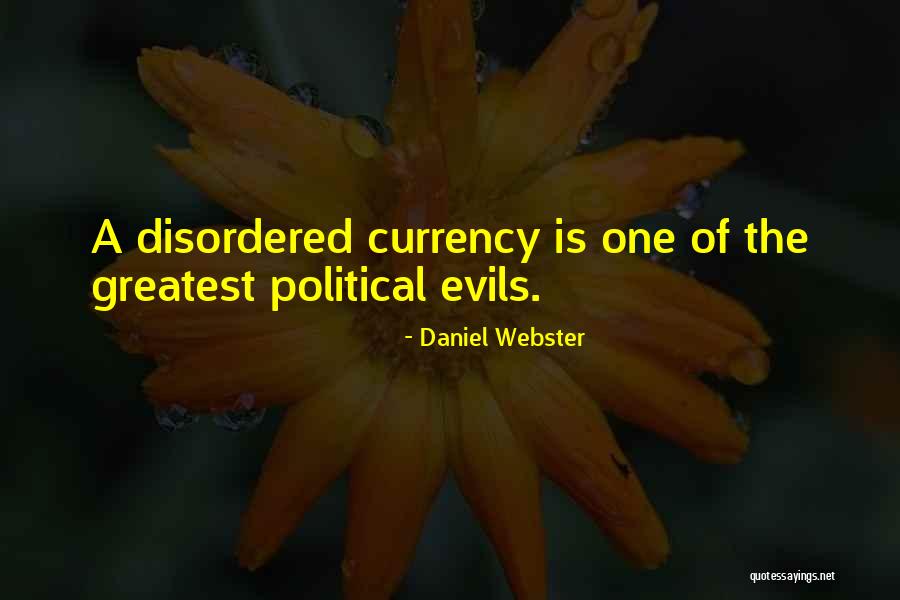
A disordered currency is one of the greatest political evils. — Daniel Webster
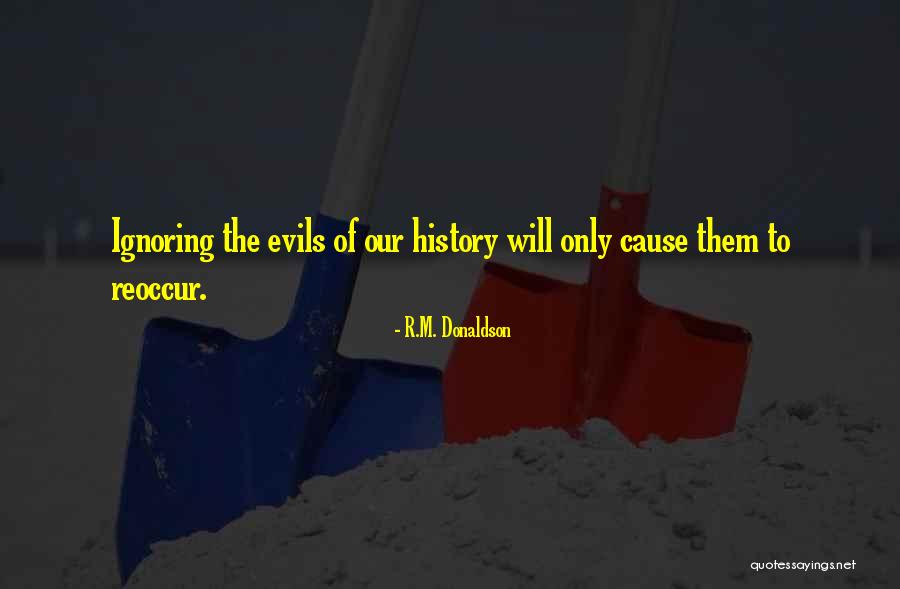
Ignoring the evils of our history will only cause them to reoccur. — R.M. Donaldson
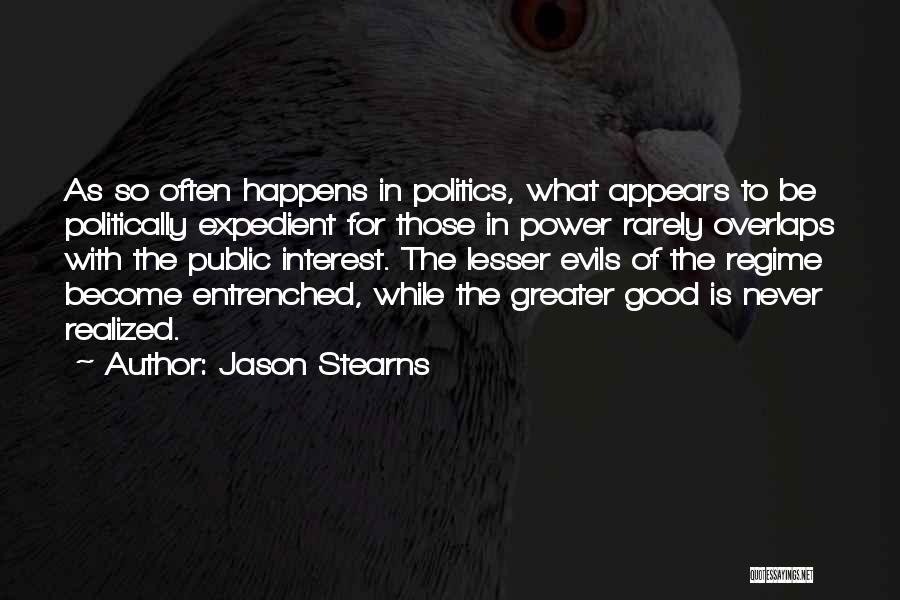
As so often happens in politics, what appears to be politically expedient for those in power rarely overlaps with the public interest. The lesser evils of the regime become entrenched, while the greater good is never realized. — Jason Stearns
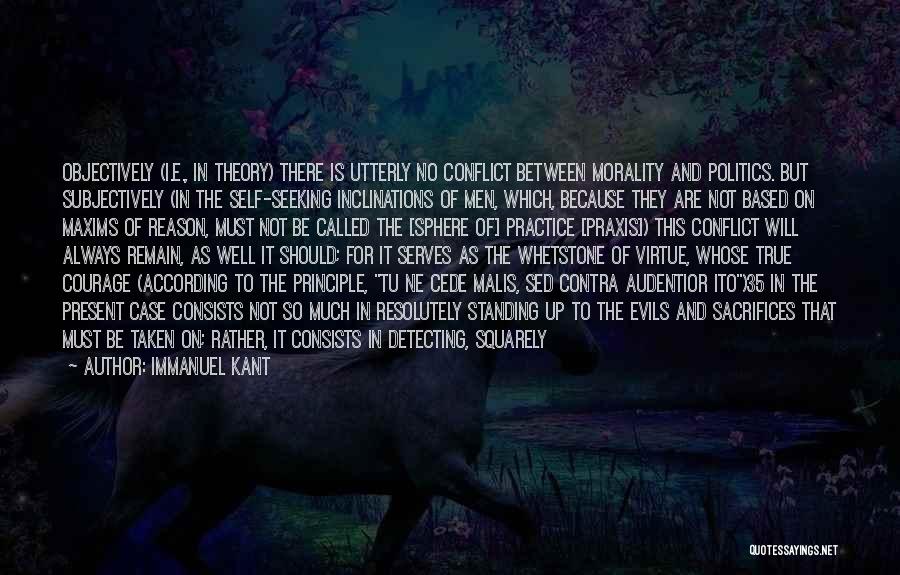
Objectively (i.e., in theory) there is utterly no conflict between morality and politics. But subjectively (in the self-seeking inclinations of men, which, because they are not based on maxims of reason, must not be called the [sphere of] practice [Praxis]) this conflict will always remain, as well it should; for it serves as the whetstone of virtue, whose true courage (according to the principle, "tu ne cede malis, sed contra audentior ito")35 in the present case consists not so much in resolutely standing up to the evils and sacrifices that must be taken on; rather, it consists in detecting, squarely facing, and conquering the deceit of the evil principle in ourselves, which is the more dangerously devious and treacherous because it excuses all our transgressions with an appeal to human nature's frailty. — Immanuel Kant
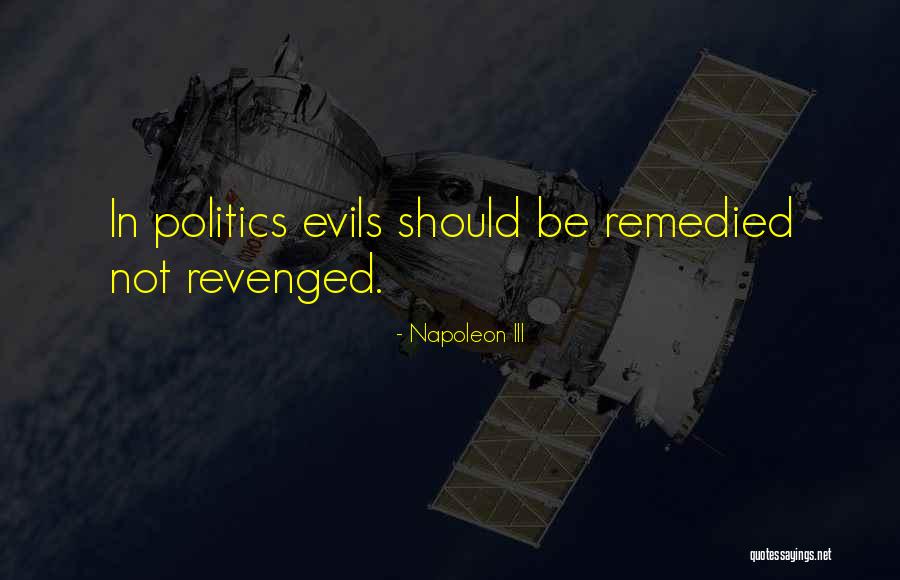
In politics evils should be remedied not revenged. — Napoleon III





